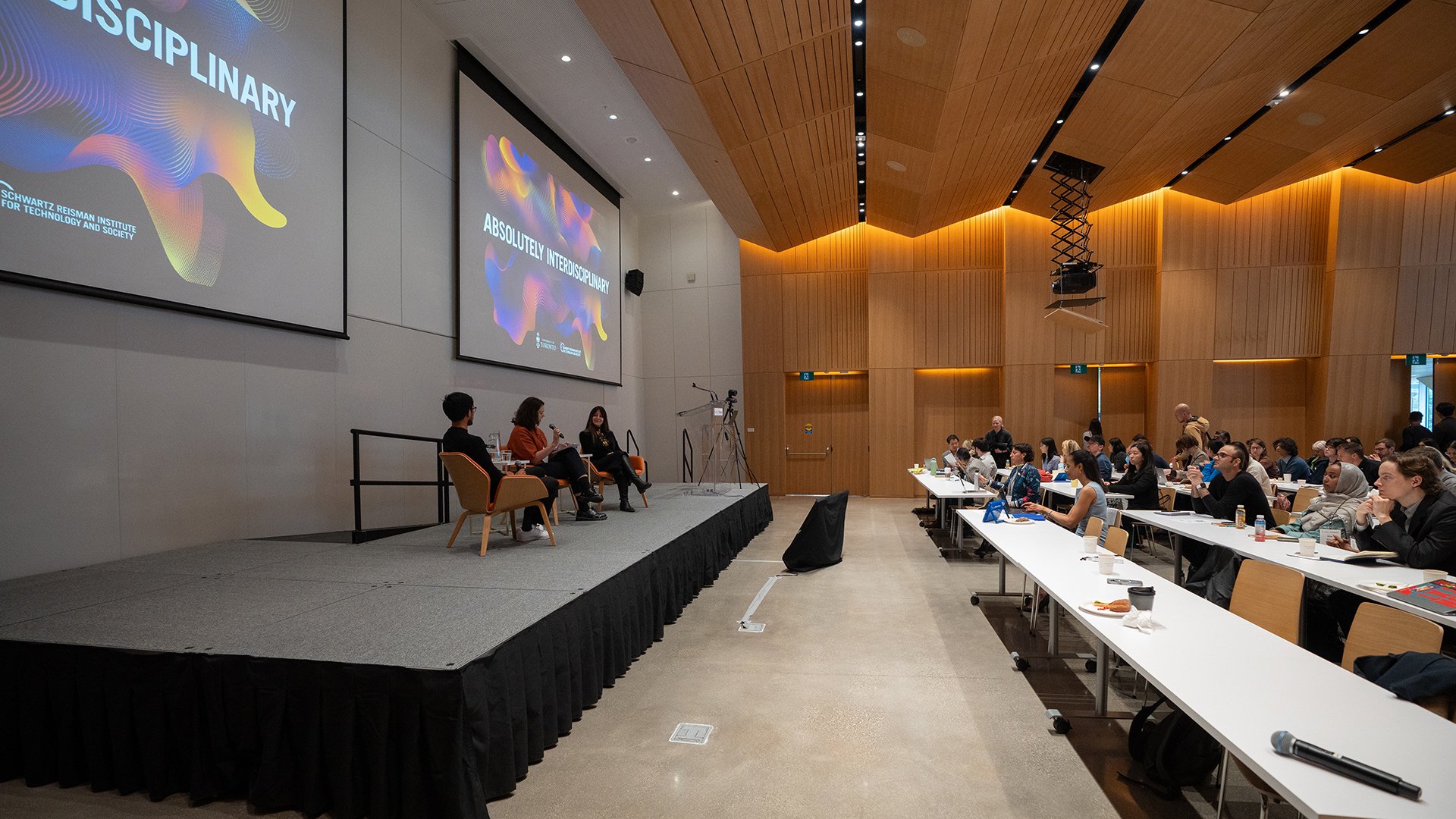Schwartz Reisman Institute announces inaugural research leadership team
Lisa Austin (L) and David Lie (R) are two of Schwartz Reisman’s eight inaugural Research Leads.
The Schwartz Reisman Institute is proud to announce the appointment of its inaugural Research Leadership Team. Working together with the Schwartz Reisman Chair in Technology and Society and Director of the Institute, Gillian K. Hadfield, these world renowned scholars will form the core intellectual leadership of the Institute. They will collaboratively develop an ambitious research agenda that spans research in artificial intelligence and computer science, the social sciences, and the humanities.
This research will help ensure that the world has the new technical, regulatory, and governance tools it needs to ensure that artificial intelligence and related digital technologies are developed and deployed in ways that are responsible and inclusive, lifting the well-being of all members of human communities around the globe. The Schwartz Reisman Institute places a particular focus on developing actionable solutions that bring together academic research, government, and for-profit and non-profit organizations.
Lisa Austin is a Professor of Law and co-founder of the IT3 Lab, which focuses on interdisciplinary research on privacy and transparency in technology. Her research focuses on legal theory as well as law and technology. Professor Austin’s extensive privacy work has been cited numerous times by Canadian courts, including the Supreme Court of Canada. Prof. Austin is a recent winner of the University of Toronto’s President’s Impact Award for her work.
David Lie is a Professor in the Department of Electrical and Computer Engineering at the University of Toronto and an expert in computer security. A pioneer in the field of trusted computing hardware, his seminal work has inspired the low-level technologies that secure mobile payments and fingerprint sensors in today’s smartphones. His current research focusses on securing mobile and embedded devices, making computing systems more trustworthy, and bridging the divide between technology and policy.
Peter Loewen is professor of political science, global affairs, and public policy. He is interested in how politicians can make better decisions, in how citizens can make better choices, and how governments can address the disruption of technology and harness its opportunities. He has published his work in journals of political science, economics, psychology, biology, and general science. He also directs PEARL (the Policy, Elections, and Representation Lab) at the Munk School of Global Affairs and Public Policy.
Sheila McIlraith is a Professor in the Department of Computer Science, University of Toronto, a Faculty Member at the Vector Institute for Artificial Intelligence, and a Canada CIFAR AI Chair. McIlraith’s research is in the area of AI sequential decision making broadly construed, with a focus on human-compatible AI. McIlraith is a Fellow of the Association for Computing Machinery (ACM) and the Association for the Advancement of Artificial Intelligence (AAAI).
Jennifer Nagel is Professor of Philosophy at the University of Toronto, specializing in epistemology and philosophy of cognitive science. Her recent work focuses on intuitive impressions of knowledge and belief, on the guidance that these impressions provide in the ordinary course of conversation and social interaction, and on what these impressions can tell us about knowledge itself. She is the author of Knowledge: A Very Short Introduction.
Toniann Pitassi is the Bell Canada Chair in Information Systems in the Department of Computer Science, as well as a Faculty Member at the Vector Institute. Her work focuses on fairness in artificial intelligence and how to address biased data sources. She has also worked extensively on computational complexity, with a particular emphasis on developing the most efficient algorithms to solve complex computational problems.
Denis Walsh is a Professor in the Department of Philosophy and the Institute for the History and Philosophy of Science and Technology. His current research focuses on the concept of natural agency, referring to any system that can maintain its viability, react and innovate, by mounting adaptive responses to its conditions. Increasingly, we are recognizing the need to understand natural agency in order to explore concepts of artificial agency in AI.
Wendy H. Wong is a Professor of Political Science and Canada Research Chair in Global Governance and Civil Society. Her research focuses on the politics of organization, why human beings choose to act collectively, their choices to go about doing it, and the effects of those choices. She is currently focused on how AI is encouraging a rethinking of the concepts of humanity and human rights, and how these concerns affect the global governance of AI.








